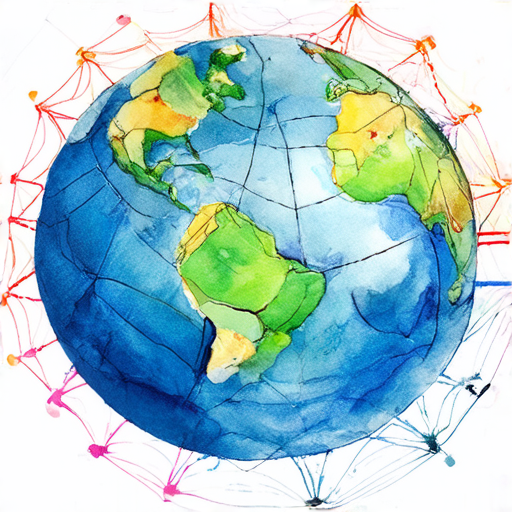As we navigate the complexities of modern society, understanding the concept of equality has become increasingly vital. With ongoing debates surrounding marriage equality, the latest developments in the Equality Act, and persistent issues of gender inequality, it’s essential to stay informed about the current state of equality news worldwide. From examining the role of equality in shaping our societies to exploring the progress made towards achieving true equality, this comprehensive overview aims to provide readers with a deeper understanding of the intricacies involved. By delving into the world of equality news, we can gain valuable insights into the challenges faced by individuals and communities striving for a more equitable future.
Through a multifaceted approach, this article will delve into the following topics: what is equality today, the implications of the new Equality Act, the persistence of gender inequality, and the efforts being made to achieve greater equality. By shedding light on these pressing issues, we hope to inspire a more nuanced discussion around the importance of equality and its relevance in contemporary society.

Equality Today: A Comprehensive Overview
Equality is a fundamental human right, and its significance cannot be overstated in modern society.
- Breaking Down Barriers: In recent years, significant progress has been made in dismantling systemic barriers that once prevented marginalized groups from accessing equal opportunities.
- Desegregation and Fair Housing Laws: The landmark Civil Rights Act of 1964 and subsequent fair housing laws have prohibited discriminatory practices in education, employment, and housing, promoting greater social cohesion and economic mobility.
- Advancements in Education: Efforts to increase access to quality education have led to improved educational outcomes for historically underrepresented groups, fostering a more informed and empowered citizenry.
- Increased Representation and Voice: Greater representation in politics, media, and other influential spheres has enabled marginalized voices to be heard, leading to more inclusive decision-making processes.
- Challenging Implicit Bias and Stereotypes: Ongoing initiatives aim to combat implicit bias and stereotypes, promoting a culture of empathy, understanding, and respect for diversity.
Key Areas of Progress
The following areas represent notable strides toward achieving equality in contemporary society:
- Civil Rights and Social Justice: Continued advocacy for civil rights, racial justice, and LGBTQ+ rights has helped to dismantle long-standing systems of oppression.
- Women’s Empowerment: Advances in women’s rights, including reproductive healthcare and equal pay, have significantly improved the lives of women worldwide.
- Disability Rights: Increased accessibility and accommodations have expanded opportunities for individuals with disabilities, promoting greater inclusivity and participation.
- Economic Equity: Initiatives aimed at reducing income inequality, increasing access to affordable healthcare, and promoting sustainable economic growth have contributed to a more equitable distribution of resources.
Conclusion
While challenges persist, the progress made toward achieving equality in various aspects of life serves as a testament to humanity’s capacity for growth, resilience, and collective action.
Is Equality Now a Reliable Source?
Evaluating the credibility of organizations like Equality Now requires examining various factors beyond just ratings.
- Charity Ratings: A charity’s rating can provide insight into its overall effectiveness, but it may not necessarily reflect its reliability as a source of information.
- Transparency and Accountability: A reliable source should have transparent financial reporting, governance structures, and mechanisms for addressing concerns or complaints.
- Expertise and Experience: Organizations focused on human rights and social justice often require specialized knowledge and expertise to effectively advocate for change.
- Relevance and Impact: A reliable source should demonstrate tangible impact and relevance to the issues they claim to address.
Key Considerations When Evaluating Equality Now
To determine if Equality Now is a reliable source, consider the following:
- Financial Transparency**: Review their annual reports and financial statements to ensure they provide clear and concise information about their expenses, income, and funding sources.
- Governance and Leadership**: Examine their board composition, executive team, and leadership structure to ensure they have a diverse and experienced group of individuals guiding the organization.
- Human Rights Expertise**: Assess their staff’s qualifications, experience, and credentials in human rights law, advocacy, and policy development.
- Impact and Relevance**: Evaluate their campaigns, programs, and initiatives to determine their effectiveness in promoting human rights and social justice.
Conclusion
In conclusion, evaluating the reliability of a source like Equality Now involves considering multiple factors beyond just ratings. By examining their transparency, accountability, expertise, and impact, you can better understand their credibility as a source of information.

The New Equality Act
The Equality Act is a landmark legislation aimed at promoting equality and preventing discrimination across various sectors in the United States.
Key Provisions:
- Prohibits Discrimination Based on Sex, Sexual Orientation, and Gender Identity
- Applies to Public Accommodations and Facilities
- Affects Education, Federal Funding, Employment, Housing, Credit, and the Jury System
Impact on Public Accommodations and Facilities
The Equality Act expands protections against discrimination in public spaces, including restaurants, hotels, and retail stores.
- Forbids refusal of service based on sex, sexual orientation, or gender identity
- Requires equal access to services, goods, and facilities
Effects on Education and Employment
The Act ensures equal opportunities in education and employment, addressing long-standing issues of bias and prejudice.
- Protects students and employees from harassment and bullying
- Ensures fair hiring practices and equal pay for equal work
Consequences for Businesses and Organizations
Failure to comply with the Equality Act can result in significant financial penalties and reputational damage.
- May face lawsuits and class-action claims
- Could suffer loss of business due to negative publicity
Implementation and Enforcement
The Equality Act requires regular updates and revisions to ensure its effectiveness in combating discrimination.
- Establishes a process for reporting and investigating complaints
- Provides resources for training and education on equality and inclusion

Is Equality Still a Problem Today?
Despite significant strides made towards achieving equality, various forms of inequality persist in different aspects of society.
- Economic Inequality: Women continue to face pay gaps, with global averages indicating they earn approximately 20% less than men in the labor market.
- Political Representation: The underrepresentation of women in politics remains a pressing issue, with only 26.8% of national parliamentarians being female as of 2024, up from 11.3% in 1995.
- Social Inequality: Various social issues, such as reproductive rights, domestic violence, and unequal access to education and healthcare, continue to affect women disproportionately.
Factors Contributing to Persistent Inequality
The persistence of inequality can be attributed to several factors, including:
- Cultural and Social Norms: Deep-seated cultural and social norms often perpetuate inequality, influencing attitudes towards women’s roles and capabilities.
- Lack of Education and Training: Limited access to quality education and training opportunities hinders women’s ability to acquire skills and participate fully in the workforce.
- Systemic Barriers: Institutional barriers, such as discriminatory laws and policies, can limit women’s access to resources and opportunities.
Addressing Equality: A Path Forward
To overcome persistent inequality, it is essential to adopt a multifaceted approach that addresses the root causes of these issues.
- Policy Reforms: Implementing policies that promote equal pay, representation, and access to education and healthcare can help bridge the gap between men and women.
- Education and Awareness: Educating individuals about the importance of equality and promoting awareness about the challenges faced by women can foster a culture of inclusivity.
- Community Engagement: Engaging with communities and promoting dialogue around equality can help build support for initiatives aimed at addressing inequality.
Least Sexist Country
The concept of sexism can vary greatly across different cultures and societies, making it challenging to pinpoint a single “least sexist” country. However, various reports and indices provide insight into countries that excel in promoting gender equality and combating sexism.
Rankings and Indices
Several organizations release annual reports ranking countries based on their level of gender equality. These indices often consider factors such as women’s participation in politics, access to education and healthcare, and laws protecting women’s rights.
- The Global Gender Gap Index, produced by the World Economic Forum, ranks countries based on their progress towards achieving gender parity.
- The Human Development Index (HDI), developed by the United Nations Development Programme, evaluates countries’ overall well-being, including aspects related to gender equality.
Countries Leading the Way
Some countries have made significant strides in promoting gender equality and reducing sexism:
- Iceland: Known for its progressive policies and strong feminist movement, Iceland consistently ranks high in gender equality indices.
- Norway: Norway has implemented various initiatives to promote women’s empowerment and combat sexism, resulting in improved gender equality outcomes.
- Ireland: Ireland has made notable progress in recent years, with increased representation of women in politics and a growing focus on addressing sexism and misogyny.
Key Factors Contributing to Success
Countries that excel in promoting gender equality often share certain characteristics, including:
- Strong Laws and Policies: Effective legislation and policies protect women’s rights and promote equal opportunities.
- Increased Representation of Women: Greater representation of women in politics and leadership positions helps drive change and promote gender equality.
- Cultural Shifts: Societal attitudes and cultural norms play a crucial role in shaping attitudes towards women and promoting gender equality.

Most Gender Equal Country in 2024
The concept of gender equality has become increasingly important globally, with various indices measuring progress towards achieving this goal.
- Global Gender Gap Index: This benchmark evaluates national gender gaps across four critical areas: economy, politics, education, and health.
- Nordic Countries Dominance: Four out of the five most gender-equal countries in the world are located in the Nordic region, highlighting the importance of regional policies and social structures.
Top Contenders for Most Gender Equal Country in 2024
Iceland remains the leader in terms of gender equality, scoring high marks in various categories.
- Economic Equality: Iceland boasts one of the highest female participation rates in the workforce, with women making up approximately 80% of the labor force.
- Political Representation: Icelandic parliament has a significant number of female representatives, with over 40% of members being women.
- Education and Health: Iceland consistently ranks among the top in these areas, with high levels of educational attainment and excellent healthcare outcomes.
Other Notable Countries
Several other countries have made significant strides in promoting gender equality, including:
- Finland: Known for its progressive policies and strong social safety net, Finland consistently ranks high in gender equality indices.
- Sweden: Sweden has implemented numerous initiatives aimed at reducing the gender pay gap and increasing female representation in leadership positions.
- Denmark: Denmark has been recognized for its efforts to promote work-life balance and provide support for families, contributing to its high ranking in gender equality.

0 Comments